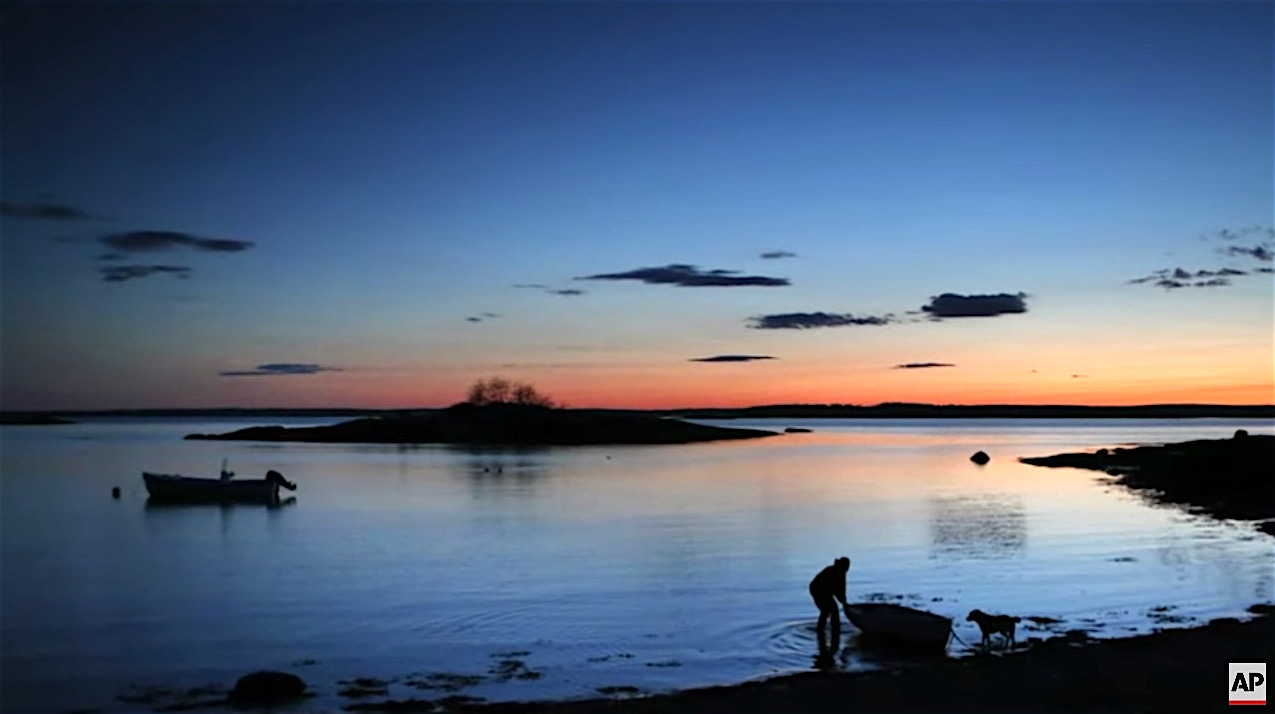Americans are more polarized over climate change than abortion, polls suggest


A free daily email with the biggest news stories of the day – and the best features from TheWeek.com
You are now subscribed
Your newsletter sign-up was successful
Scientists are overwhelmingly convinced that climate change is real, largely caused by human activity, and a deeply serious problem. The American electorate, on the other hand, is deeply divided over the issue. That didn't use to be the case, The Associated Press reminds us, noting that two decades ago, the leading senator proposing action on global warming was a Republican (John McCain, but still). Then, sometime around 1997, when Vice President Al Gore helped negotiate the Kyoto Protocol — and George W. Bush withdrew the U.S. four years later — the Democrats and Republicans started to split, partisan views on climate change growing into a chasm after President Obama was elected and the Tea Party revolted.
Now, climate change is "more politically polarizing than abortion," Anthony Leiserowitz, director of the Yale Program on Climate Change Communication, tells AP. "It's more politically polarizing than gay marriage." Citing surveys by Yale and George Mason University, Leiserowitz has some numbers: 17 percent (and growing) of Americans are alarmed by climate change and want action now, 28 percent are concerned and believe it is man-made but don't think the threat is imminent, 27 percent are cautious but on the fence, 11 percent are skeptical, 10 percent are vocally dismissive of the science and its conclusions, and the last 7 percent aren't paying attention.
There are differing theories about why the issue is so polarizing — Northeastern University's Matthew Nisbet says that because climate change requires collective global action, "for conservatives that's especially difficult to accept"; Yale's Dan Kahan ties it to America's growing political Balkanization, noting that if you ask Americans, "they know that scientists say we're screwed" but for many that's "not what activates them"; and Georgia Tech atmospheric scientist Judy Curry, a climate change skeptic, finds fault in the scientific community, arguing, "This polarization comes down to being intolerant on disagreement."
The Week
Escape your echo chamber. Get the facts behind the news, plus analysis from multiple perspectives.

Sign up for The Week's Free Newsletters
From our morning news briefing to a weekly Good News Newsletter, get the best of The Week delivered directly to your inbox.
From our morning news briefing to a weekly Good News Newsletter, get the best of The Week delivered directly to your inbox.
Finally, Stanford University's Jon Krosnick argues that most Americans actually agree, noting surveys showing that 90 percent of Democrats, 80 percent of independents, and 70 percent of Republicans concede that the world is getting hotter because of human activity, even if only half of Republicans think this will be a serious problem for the U.S. This nuance in the polling becomes more understandable when you listen to actual people, as AP does in the video below. You can read more at AP. Peter Weber

A free daily email with the biggest news stories of the day – and the best features from TheWeek.com
Peter has worked as a news and culture writer and editor at The Week since the site's launch in 2008. He covers politics, world affairs, religion and cultural currents. His journalism career began as a copy editor at a financial newswire and has included editorial positions at The New York Times Magazine, Facts on File, and Oregon State University.
-
 6 of the world’s most accessible destinations
6 of the world’s most accessible destinationsThe Week Recommends Experience all of Berlin, Singapore and Sydney
-
 How the FCC’s ‘equal time’ rule works
How the FCC’s ‘equal time’ rule worksIn the Spotlight The law is at the heart of the Colbert-CBS conflict
-
 What is the endgame in the DHS shutdown?
What is the endgame in the DHS shutdown?Today’s Big Question Democrats want to rein in ICE’s immigration crackdown
-
 The plan to wall off the ‘Doomsday’ glacier
The plan to wall off the ‘Doomsday’ glacierUnder the Radar Massive barrier could ‘slow the rate of ice loss’ from Thwaites Glacier, whose total collapse would have devastating consequences
-
 Can the UK take any more rain?
Can the UK take any more rain?Today’s Big Question An Atlantic jet stream is ‘stuck’ over British skies, leading to ‘biblical’ downpours and more than 40 consecutive days of rain in some areas
-
 As temperatures rise, US incomes fall
As temperatures rise, US incomes fallUnder the radar Elevated temperatures are capable of affecting the entire economy
-
 The world is entering an ‘era of water bankruptcy’
The world is entering an ‘era of water bankruptcy’The explainer Water might soon be more valuable than gold
-
 Climate change could lead to a reptile ‘sexpocalypse’
Climate change could lead to a reptile ‘sexpocalypse’Under the radar The gender gap has hit the animal kingdom
-
 The former largest iceberg is turning blue. It’s a bad sign.
The former largest iceberg is turning blue. It’s a bad sign.Under the radar It is quickly melting away
-
 How drones detected a deadly threat to Arctic whales
How drones detected a deadly threat to Arctic whalesUnder the radar Monitoring the sea in the air
-
 ‘Jumping genes’: how polar bears are rewiring their DNA to survive the warming Arctic
‘Jumping genes’: how polar bears are rewiring their DNA to survive the warming ArcticUnder the radar The species is adapting to warmer temperatures
